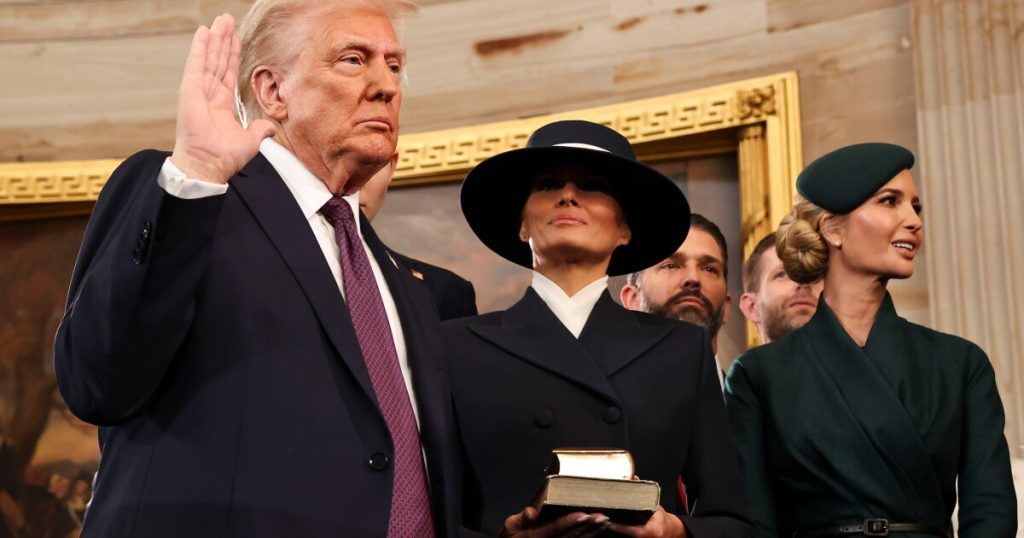Chip Somodevilla/Bloomberg
WASHINGTON — President Donald Trump discussed with congressional Republicans ending a tax provision that enables wealthy fund managers and private equity executives to pay low taxes, even compared to low and moderate income earners.
The carried interest provision allows partners of investment funds to claim large parts of their compensation for services as investment gains, which lowers the amount that they pay in taxes. Trump floated the idea in private meetings with Republicans at the White House on Thursday, which are still ongoing, White House press secretary Karoline Leavitt told reporters.
Leavitt said that Trump’s priorities include no tax on senior Social Security, no tax on overtime pay and “President Trump’s 2017 middle class tax cuts.” She also said that Trump wants to adjust the state and local tax deduction cap, close the carried-interest tax deduction loophole and “eliminate all the special tax breaks for billionaire sports team owners.”
“This will be the largest tax cut in history for middle-class working Americans,” Leavitt said. “The president is committed to working with Congress to get this done.”
Trump also wanted to see the end of the carried interest provision in the 2017 tax package, although it didn’t make the final bill sent to his desk. Republicans will, however, need more buy-in from Democratic lawmakers this time around, with the House more tightly divided than it was in 2017, and eliminating the provision could be a way to get more House Democrats on board with a final bill.
Cutting the carried interest loophole would still face a long road to being included in law, in part because it’s an important issue for major donors to both parties.
During the last effort to narrow the provision in 2022, Sen. John Thune, R-S.D., who is now the Senate majority leader, worked with Sen. Kyrsten Sinema, D-Ariz., on an amendment that undercut the effort.

